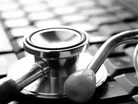Data Security Increasing Concern Due To BYOD

Many healthcare institutions are increasingly taking advantage of mobile health applications, which has in turn led to many firms adopting BYOD (Bring-Your-Own-Device) initiatives in a bid to reduce cost and facilitate greater update with doctors and medical professionals. However, with this comes a need for added data security.
The uptake of mHealth apps has led to more healthcare firms and medical professionals sharing confidential imagery and content via mobile devices.
Andrew Brown, Executive Director of Enterprise Research at Strategy Analytics cautioned, “In an environment where BYOD is more and more common, healthcare organizations need to be especially vigilant to safeguard patient confidentiality while reaping the benefits of remote image access on multiple platforms. Ensuring regulatory compliance in healthcare remains critical.”
In the US, the Health Insurance Portability and Accountability Act requires healthcare organisations to protect patient privacy and information. The follow-on low, the Health Information Technology for Economic and Clinical Health Act, allows the Department of Health and Human Services to levy fines on firms that fail to meet the required standards and protect patient information. Last year the HHS’s Office of Civil Rights levied million dollar fines against a number of large healthcare institutions for data breeches involving patient information.
“Smartphones and tablets have improved so much as image capture and display devices that they permit remote diagnosis with accuracy rates that approach in-person examination,” said Tom Elliott, Director of Emerging Markets at Strategy Analytics. Elliott said that in 2011, MIM Software received Food and Drug Administration approval for the use of its iOS viewing application for diagnostic x-ray and ultrasound viewing.
However, many of the data breaches reported to HHS involve the loss or theft of mobile devices containing patient information. So, healthcare firms have a substantial interest in protecting patient information, especially data and images that can be sent on mobile devices.
Read Related Articles On Healthcare Global
- How To Manage BYOD Systems In The Healthcare Arena
- Wireless Technology Implementation In Hospitals
- Physicians & Healthcare Professionals Support mHealth Apps
